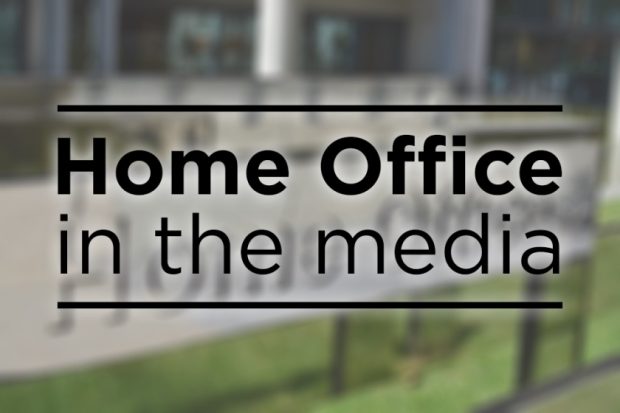Today's leading stories include the UK's terrorism threat level, and immigration surgeries at community and faith based locations.
Terrorism threat level
There is widespread coverage of the UK’s terrorism threat level being downgraded from severe to substantial after the Home Secretary’s written ministerial statement was laid in Parliament yesterday.
The papers report that the Home Secretary said the risk of an attack is now "likely" rather than "highly likely", with a review carried out every six months. The coverage adds that the Joint Terrorism Analysis Centre (JTAC) makes the decision independently of the Government.
The Telegraph report that the announcement comes a week after Islamic State leader Abu Bakr al-Baghdadi was killed in a raid. It further adds that powers to revoke UK passports and prevent jihadists returning to the UK has also made Britain relatively safer.
Both the Times and Independent carry comments from Neil Basu, assistant commissioner and head of counter-terrorism policing at the Metropolitan Police, who called on the public to “maintain a high level of vigilance”.
Home Office immigration surgeries
The Guardian reports that religious and community organisations have been paid thousands of pounds by the Home Office to assist immigration enforcement teams in removing people from the UK.
According to the article, there is “mounting concern” about Home Office tactics in removing migrant rough sleepers and the use of payments to assist with these removals. It adds that the department is facing “accusations of racial profiling”.
A Home Office spokesperson said:
Immigration surgeries give people the opportunity to speak to immigration officers about the steps they should take to regularise their stay or to get practical support to return voluntarily.
These are held in community and faith based locations, including mosques, in order to have conversations with individuals without the fear of arrest. Home Office staff build relationships with community leaders and surgeries are conducted with their permission.
Fingerprints are not taken at immigration surgeries. No personal information of those attending surgeries are held by Immigration Enforcement, unless that person requests a voluntary return appointment.

